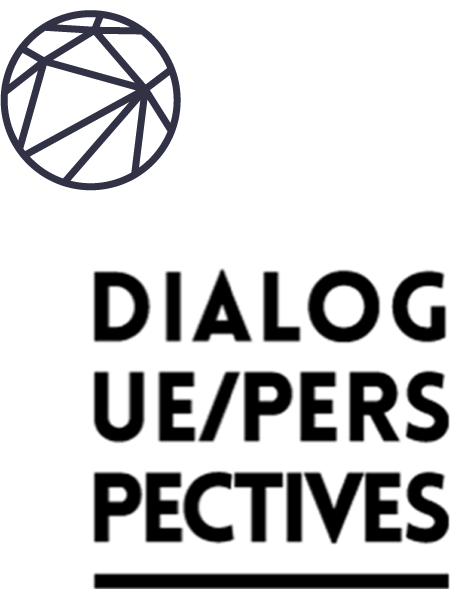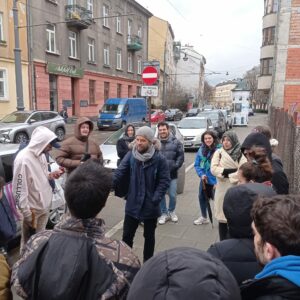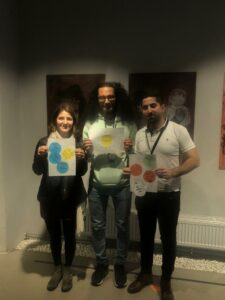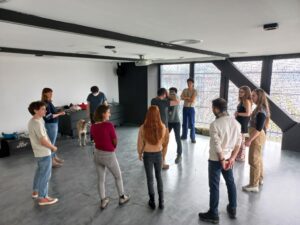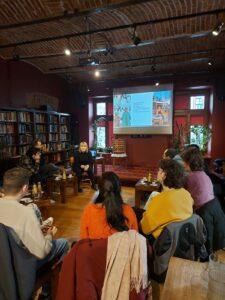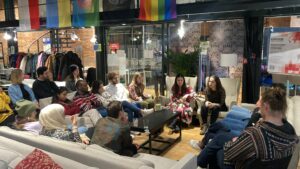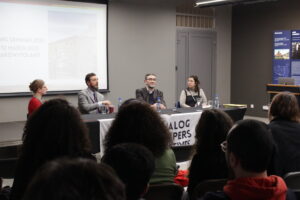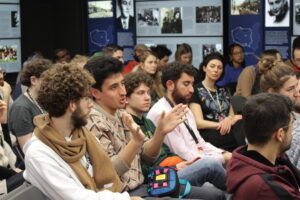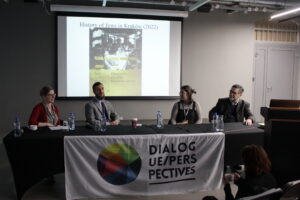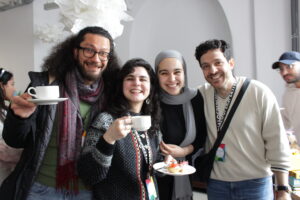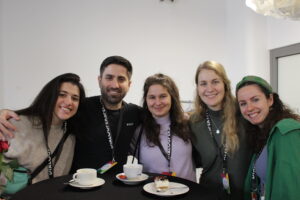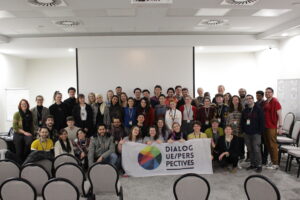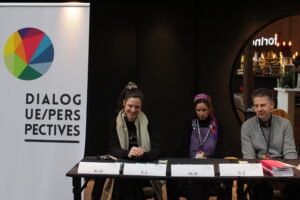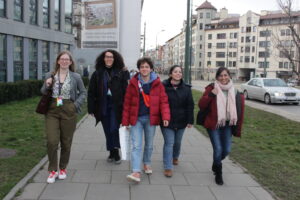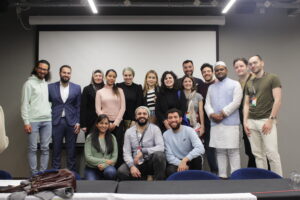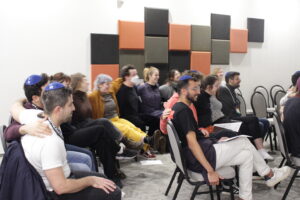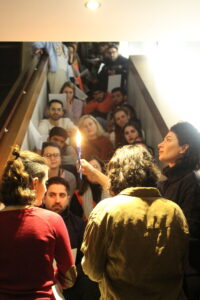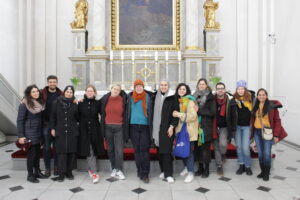Retrospect: SPRING SEMINAR 2023
Spring Seminar 2023: “Mapping Memory, Shaping Present & Future. Exploring the religious/worldview and social landscapes of Poland”
8 – 12 March 2023
Kraków, Poland
The second seminar of the DialoguePerspectives programme year brought us and our participants to Kraków in Poland. There, we were the guests of the Jewish Museum Galicija and were supporting in our organisational and conceptual planning by our partners at the Department of History of Judaism and Jewish Literatures at the Jagiellonian University Kraków. After having approached the potentials and opportunities offered by societal plurality from a primarily theoretical/conceptual angle during our Autumn Seminar 2022, this seminar represented a second step focussing more on the practical application and relevance to concrete social contexts. Our participants were able to experience first-hand the religious, worldview, and societal diversity of Kraków (and Poland) and had the chance to put their plurality skills to practical use, thus strengthening them while also grappling with their own diversity as a group.
The goal of the spring seminar was to provide as many diverse insights into the history and present of Kraków as possible. In doing so, it was always also our goal to capture competing views of the city from within and to provide space to each of these aspects. Various formats such as workshops, panel discussions, reflections, and shared religious-worldview praxis offered the participants the chance to approach these varying views from different directions. The topics and substantive focuses of the seminar were contributed in part by our participants from the autumn seminar, in part by the workshop leaders, and in part by our cooperation partners. Taken together, they offered a comprehensive view of issues relating to plurality and the skills needed to address them as a society. Undoubted highlights of the seminar were the excursions in which the participants visited local civil society and religious institutions in Kraków in smaller groups – the Jewish Community Center, the Evangelical Church of the Augsburg Confession in the Republic of Poland, the Romani Federation Jaw Dikh, the Salam Lab, the Jewish Culture Festival, the Fundacja Wiara I Tęcza (Faith and Rainbow), and the Cricoteka (Centre for the Documentation of the Art of Tadeusz Kantor). The discussions were not always without their linguistic challenges, which made linguistic plurality and the ability to reach shared understandings without a common vocabulary a part of the experience.
Our participants also faced challenges in exercising their own religious practices. Although Kraków is indeed known for the recent revitalisation of Jewish life there, the city had no Jewish congregation that was able to accommodate our entire group (in addition to their own members) on Shabbat. The places of Muslim prayer are also small and located far from the city centre. And, although there is no lack of churches (even large ones) in Kraków, most services are Catholic and are held in either Polish or Latin. Here, our participants learned to navigate the familiar within the unfamiliar. A group of Muslim students visited us for the Jum’ah Friday prayer and gave our participants insights into their lives in Kraków following the prayer. Our Jewish participants orchestrated Shabbat and Havdalah for the group and on Sunday morning, everyone attended a Protestant service held in Polish together.
In addition to the religious side, our spring seminar also featured worldview practices. On Friday evening, we came together for a commemoration of the victims of the earthquake in Turkey, Syria, and Kurdistan planned and carried out by participants. The strength of the group was visible as the participants came together to share in this difficult moment in their own unique way. On Sunday afternoon, we ended the seminar by joining in the March of Plaszów, held in remembrance of the liquidation of the Kraków ghetto in 1943, in which we as a group united with the other people in Kraków taking part in the commemoration.
The second seminar of the programme year left us all with many impressions and memories of intensive encounters, fruitful collaboration, and on the wide variety of religious and worldview praxes we all shared. With gratitude to all our cooperation partners and hosts, and with the suggestions and ideas of our participants in mind, we are looking forward to preparing for our next reunion at the Annual Summit in June 2023 in Berlin.
Pictures: İrem Çörekçi & Adrian Fiedler
